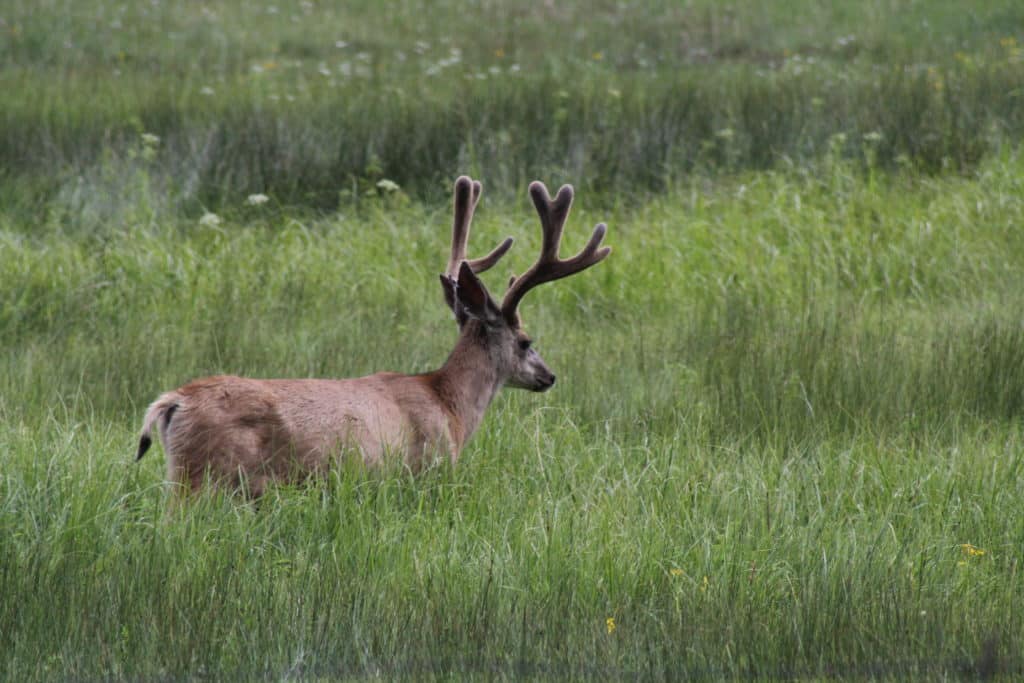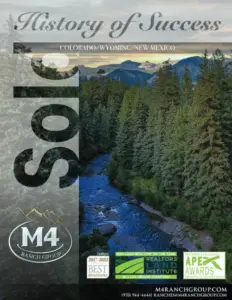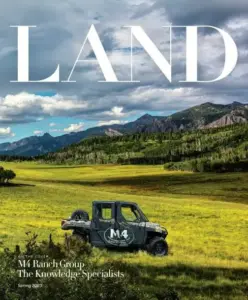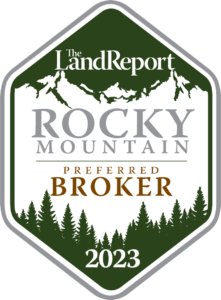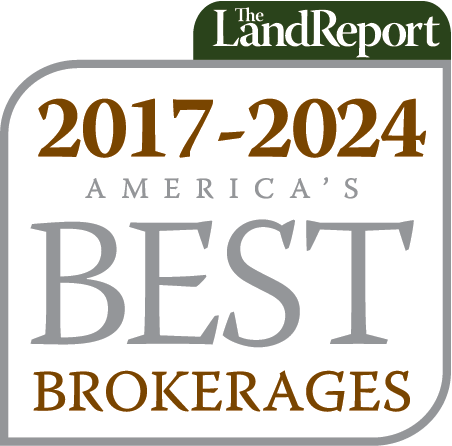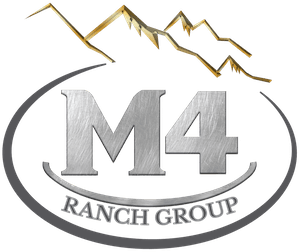Written By Dan Murphy—Owner/Broker of M4 Ranch Group
The West offers so many extraordinary things, from big peaks to big views to the exceptional big game. If you are interested in buying a western ranch with a goal of enjoying quality big game hunting, you need to understand how each western state regulates private land owner hunting opportunities.
First look at size of the ranch, terrain, bedding, grazing, herd migration, and elevations. Is it large enough to control migration routes of the regions herds? Does the herd on the ranch you’re buying live on deeded ground for the bulk of the hunting seasons? Ranches that hold regional herds are considered ‘sanctuary ranches’ and are few and far between. ‘Sanctuary ranches’ typically have large deeded acreage and are represented by an equally significant price tag. The west still offers many quality hunting ranches that do not control the herd for the bulk of the hunting season. When researching these ranches it is crucial to concentrate on the state’s Game Management Units (GMU’s) or wildlife management area plan.
Western states offer a wide variety of private land owner participation for acquiring big game licenses. Each state also manages different areas for specific big game management criteria. These management types are typically designed for three basic goals, quality herds, quality experience or high opportunity participation.
The high opportunity participation (Open Units) plan in GMU’s or wildlife areas concentrate on heavy hunter participation, providing more opportunity for more hunters. However, characteristically these types of GMU’s typically produce a lesser herd quality with fewer mature animals.
Other areas in the western states managed for quality herds or quality experience, are typically more limited or draw tag hunting units. These areas see fewer hunter numbers, therefor statistically higher ratios of males to females as well as more mature animals. For many, this leads to a higher quality hunting experience.
If researching a ranch in a more limited GMU or area, you should determine the herd counts, sex ratios and herd compositions of that unit. These issues are a critical part to determining the quality of the unit. Once you have found a quality ranch in a quality unit you then have a few options for acquiring land owner big game tags. If you are a non-resident Ranch owner and wish to acquire tags for these quality managed units, you basically have two options:
Option 1: Participate in the states limited drawing systems as an individual, each western state provides a variety of processes, some use preference point systems, some use a weighted draw system, some use a pay to play option, some are just luck.
Option 2: Learn your states Land Owner Draw system. These Land Owner License systems vary from state to state just as the private hunter draw system vary from state to state. Each state offers some sort of land owner participation, some states favor the land owner, some don’t, having a better understanding of these programs, the qualifications and the processes to register your ranch, apply for tags and working within the rules of the state’s system are imperative.
For example: New Mexico manages the state under an E-Plus program built on two criteria, one is ranches within the C.O.E.R. or Core Occupied Elk Range and those ranches located outside the C.O.E.R. areas. The ranches in the C.O.E.R area can provide both private land only big game certificates and unit wide certificates. This is a HUGE factor in using the neighboring wilderness areas and neighboring public lands in addition to your ranch for quality hunting. If you are buying a large and secure ranch but it is not a ranch that controls the whole herd during the whole season, then these types of unit wide tags are a monumental benefit to your ranch. If your ranch is outside the C.O.E.R. area the land owner tags are predominately private land only tags. If you border public lands with exceptional habitat and herds, you cannot use your land owner preference to hunt outside your deeded ground.
In Colorado the Land Owner System is very different, Colorado’s LPP (Landowner Preference Program) is based on ranches that are greater than 160 consecutive acres. These properties must be designated for agriculture use, providing habitat for the species of wildlife for more than six months and one day a year. These qualifying ranches are also subject to inspection by the local Division of Wildlife Manager or DWM’s to verify your ranch can and does qualify. Once you are in the Colorado LPP program your ranch applies individually to acquire tags issued in each unit. For the mountain regions of Colorado the land owner set aside tags represent 10 percent of the total tags issued in any given unit. The more limited the unit the better the game the fewer the tags. Each ranch, depending on its size, gets a number of 1st choice applications for each big game species that resides on the land. The Colorado system, like every other state, is not perfect but it does work off the preference point system which allows your ranch to know statistically when it will draw a very high demand premier big game tag.
Each state offers some type of ranch participation when it comes to big game hunting. It is important to remember each state highly encourages or even requires public hunters have access to hunt your private deeded ground through the use of Land Owner Participation big game tags. Once again the most important factor is to learn your state regulations, your prospective areas herd health, and the draw system. Or you can seek out an experienced ranch broker that works to better understand the nuances of each ranch, its area and why that particular ranch meets your end goals. M4 Ranch Group is one of those Western Ranch Companies that concentrates its efforts on understanding these key issues and understanding what it means to “Experience the West”.

